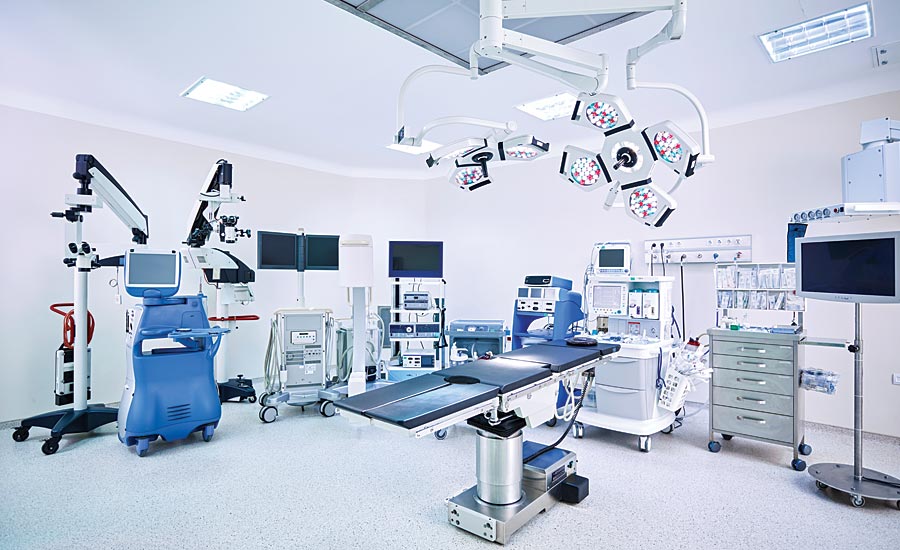The new article provides additional details regarding the documents required when importing medical devices in Ethiopia, as well as the information these documents should contain. Additionally, the article describes the procedures to be followed when importing medical devices into the country.

Table of Contents
The Ethiopian Food and Drug Authority (EFDA), a country’s regulatory agency in the sphere of healthcare products, has published a guidance document dedicated to the requirements for medical devices clearance in ports of entry. The document is intended to provide additional clarifications set forth by the applicable legislation in the sphere of importation of medical devices intended to be marketed and used in Ethiopia, as well as recommendations to be considered by all the parties involved.
Procedure for Importation of Medical Devices
The present guidance describes in detail the procedure to be followed to import medical devices in Ethiopia. According to the guidance, the importers and/or the institutions intending to import medical devices should apply online for a purchase order or pre-import permit through the eRIS system. Such a request should be accompanied by the respective documentation, e.g., proforma invoice, donation certificate, etc. A permit issued by the authority remains valid for one calendar year and cannot be assigned to another entity. The scope of a single import permit could cover one or more shipments. Furthermore, the authority also mentions that partial shipment is acceptable as well. The authority additionally emphasizes that upon cancellation or expiration of the permit, an entity is no longer allowed to import medical devices.
In case the device to be imported is intended to be used in clinical trials, the appropriate request for an import permit should be submitted by a party responsible for the respective trial (sponsor), which is entitled to undertake the clinical study in the country. Consequently, a request for an import permit related to a medical device intended to be used in the context of a clinical study should be accompanied by the respective clinical trial approval letter.
A special approach should be also applied in case of medical devices imported to be used for a specific patient based on the prescription issued by a healthcare professional. When applying for an import permit for such devices, an interested party should duly provide the respective prescription, provided the product in question is a medical device assigned to class II, III, or IV under the applicable risk-based classification. The appropriate prescription is also required when importing class I non-IVD medical devices (or class A IVD ones). The prescription should indicate the number of products to be imported, and such a quantity should be reasonable in light of the expected use of the device.

Document Requirements
The authority further provides additional clarifications regarding the scope of documentation to be provided. According to the guidance, there are two main types of documents: administrative documents and technical documents.
The list of administrative documents needed to complete the clearance at the port of entry includes the following ones:
- Valid purchase order (PO) or pre-import permit (PIP);
- Valid registration certificate;
- Certificate of competency (COC);
- Certificate of origin (COO);
- Clinical trial authorization (approval) letter from the responsible directorate of EFDA;
- Written prescription paper;
- Prescription paper or medical certificate;
- Donation certificate.
The guidance also provides the list of technical documents, namely:
- Packing list;
- Commercial invoice;
- Airway bill (AWB) or bill of loading;
- Certificate of Analysis (COA) for sterile medical devices (sterility certificate);
- Certificate of refurbishment (for a used medical device).
The EFDA describes each of the above mentioned documents in detail and highlights the most important aspects to be considered to ensure the admissibility of such documents.
Inspection of Imported Consignments
A separate section of the present EFDA guidance is dedicated to the inspection of imported consignments at ports of entry. As explained by the authority, on arrival at the ports of entry, medical devices will be inspected by an EFDA Inspector to ensure that they comply with the approved specifications and regulations before they are released. The inspector will assess the completeness of documents including the respective import permit, proforma invoice, and also the appropriate certificate of analysis together with the transportation documents (e.g., airway bill or bill of lading).
The authority additionally emphasizes that to be allowed for importation, all the products should have a valid shelf life, namely:
- 30 months remaining, if its assigned expiry date is more than 48 months to 60 months, or
- 24 months remaining, if its assigned expiry date is more than 36 months to 48 months, the remaining term is 24 months; or
- 15 months remaining, if its assigned expiry date is more than 24 months to 36 months, or
- 12 months remaining, if its assigned expiry date is 24 months or less.
As further explained by the EFDA, the inspection process includes such procedures as:
- Review of the documents accompanying the consignment;
- Physical inspection of products;
- Cross-checking (comparison of medical devices in place and information provided in documentation).
As it was already mentioned, a consignment should be accompanied by the relevant administrative and technical documents listed hereinabove. Upon completion of document review, the inspector will assess the products themselves, while special attention will be paid to packaging, labeling, and storage/transportation requirements to verify the appropriate requirements are duly fulfilled. At this stage, the inspector is entitled to collect samples of the products in question to be able to proceed with an additional assessment. In such a case, the appropriate sample collection form should be signed. Collected samples would be forwarded to the Medicine Quality Control Directorate (MQCD) of EFDA for further examination. Since it will take time to conduct an additional examination, an interested party will be allowed to store the medical devices of the same consignment in specific premises, provided such devices would not be allowed for marketing and use in the country before the authority will make its final determination.
When cross-checking the devices, the inspector will make sure the devices in place are in line with documentation provided by an interested party. Apart from this, such an assessment would also cover a comparison of labeling and respective information reflected in other documents to ensure consistency in details.
Once the inspection is completed, the authority is entitled to take one of three actions listed below:
- Approve the release of medical devices;
- Extend the process (in case of additional questions arising), while medical devices subject to review should be stored in separate premises;
- Reject the shipment and require re-exportation.
According to the guidance, the inspector is entitled to detain medical devices in case of:
- Missing of any documents indicated above;
- Labeling and/or packaging problems;
- Storage condition problems;
- Any safety, quality, and performance issues.
The present EFDA guidance provides additional details regarding the procedures to be followed when importing medical devices to Ethiopia. The document highlights the most important aspects to be considered concerning documentation and the information it should contain.
Sources:
How Can RegDesk Help?
RegDesk is a next-generation web-based software for medical device and IVD companies. Our cutting-edge platform uses machine learning to provide regulatory intelligence, application preparation, submission, and approvals management globally. Our clients also have access to our network of over 4000 compliance experts worldwide to obtain verification on critical questions. Applications that normally take 6 months to prepare can now be prepared within 6 days using RegDesk Dash(TM). Global expansion has never been this simple.

